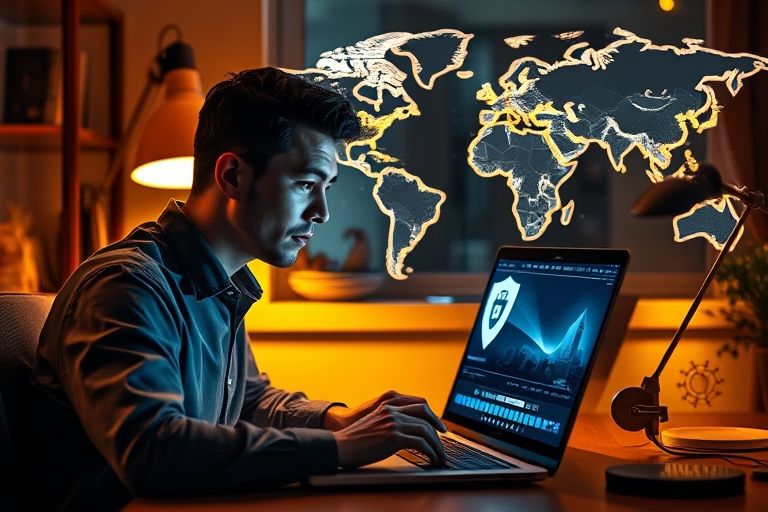The Importance of Cybersecurity VPNs for Remote Workers
With the increasing trend of remote work, cybersecurity has become a major concern for many businesses. Cybercriminals are always on the lookout for vulnerabilities they can exploit, and remote workers are often vulnerable targets. One way to protect remote workers and the company's data is by using cybersecurity VPNs. In this article, we will discuss why cybersecurity VPNs are essential for remote workers, provide examples, statistics, facts, and offer tips on how to use them effectively.
What is a VPN?
A VPN, or Virtual Private Network, is a tool that creates a secure and encrypted connection between a remote worker and their company's network. VPNs encrypt data in transit, making it unreadable to anyone who may intercept it. This provides a secure connection for remote workers to access company files and sensitive data.
Why are Cybersecurity VPNs Essential for Remote Workers?
Cybersecurity VPNs are essential for remote workers because they provide a secure connection to the company's network. Without a VPN, remote workers are vulnerable to cyber-attacks, such as man-in-the-middle attacks, data breaches, and identity theft. The following are some reasons why cybersecurity VPNs are essential for remote workers:
- Secure Connection: Cybersecurity VPNs provide a secure connection that encrypts data in transit, making it unreadable to anyone who may intercept it.
- Remote Access: Cybersecurity VPNs enable remote workers to access company files and sensitive data from anywhere in the world.
- Data Privacy: Cybersecurity VPNs ensure that remote workers' internet activity is private and not visible to anyone, including their internet service provider (ISP).
- Protection from Cyber Threats: Cybersecurity VPNs protect remote workers from cyber threats, such as man-in-the-middle attacks, data breaches, and identity theft.
Examples of Cybersecurity VPNs
There are many cybersecurity VPNs available in the market. Some popular options include:
- NordVPN: NordVPN is a popular cybersecurity VPN that offers robust security features, including military-grade encryption, double VPN, and a strict no-logs policy.
- ExpressVPN: ExpressVPN is another popular cybersecurity VPN that offers fast speeds, strong encryption, and a user-friendly interface.
- CyberGhost VPN: CyberGhost VPN is a reliable cybersecurity VPN that offers strong encryption, a strict no-logs policy, and a user-friendly interface.
How to Use Cybersecurity VPNs Effectively
Here are some tips on how to use cybersecurity VPNs effectively:
- Choose a Reliable VPN: Choose a reliable cybersecurity VPN that offers strong encryption, a strict no-logs policy, and a user-friendly interface.
- Keep Your VPN Updated: Keep your cybersecurity VPN updated to ensure that it has the latest security features and bug fixes.
- Use Two-Factor Authentication: Use two-factor authentication to add an extra layer of security to your VPN login.
- Avoid Public Wi-Fi: Avoid connecting to public Wi-Fi networks without a VPN, as they are often unsecured and vulnerable to cyber-attacks.
Cybersecurity VPNs Statistics and Facts
The following are some statistics and facts about cybersecurity VPNs:
- More than 50% of remote workers use a VPN to access their company's network.
- Cybersecurity VPNs market size is expected to reach $31.1 billion by 2025.
- Only 5% of internet users in the US use a VPN.
Conclusion
Cybersecurity VPNs are essential for remote workers because they provide a secure and encrypted connection to the company's network. With the increasing trend of remote work, it is crucial for businesses to ensure that their remote workers are protected from cyber threats. By choosing a reliable VPN, keeping it updated, using two-factor authentication, and avoiding public Wi-Fi, remote workers can effectively use cybersecurity VPNs to protect themselves and their company's data.
